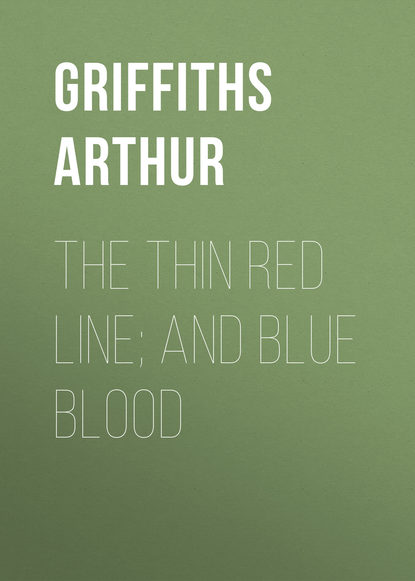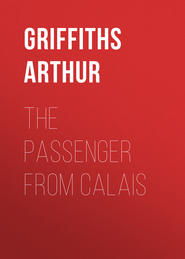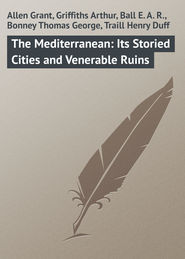По всем вопросам обращайтесь на: info@litportal.ru
(©) 2003-2024.
✖
The Thin Red Line; and Blue Blood
Настройки чтения
Размер шрифта
Высота строк
Поля
"I think I told you yesterday, Mrs. Wilders, that I intended to return to England," said Lord Lydstone, in a cold, hard voice.
"Yes; when do you start?"
"To-morrow, I think. Have you any commands?"
"You do not offer me a passage home?"
"Well, you see, I am travelling post haste," he answered. "I shall only go in the yacht as far as Trieste, and then on overland. I fear that would not suit you?"
"I should be perfectly satisfied"—she was not to be put off—"with any route, provided I go with you."
"You are very kind, Mrs. Wilders," he said, more stiffly, but visibly embarrassed. "I think, however, that as I shall travel day and night I had better—"
"In other words, you decline the pleasure of my company," she said, in a voice of much pique.
It was very plain that she had no longer any influence over him.
"But why are you in such a desperate hurry, Lord Lydstone?" she went on.
"I have had letters, urging me to hurry home. My father and mother are most anxious to see me; and now, after what has happened, it is right that I should be at their side."
"You are a good son, Lord Lydstone," she said, but there was the slightest sneer concealed beneath her simple words.
"I have not been what I ought, but now that I am the only one left I feel that I must defer to my dear parents' wishes in every respect." He said this with marked emphasis.
"They have views for you, I presume?" Mrs. Wilders asked, catching quickly at his meaning.
"My mother has always wanted me to settle down in life, and my father has urged me—"
"To marry. I understand. It is time, they think, for you to have sown your wild oats?"
"Precisely. I have liked my freedom, I confess. Now there are the strongest reasons why I should marry."
"To secure the succession, I suppose."
"We have surely a right to look to that!" said Lord Lydstone, rather haughtily.
"Oh! of course. Everyone is bound to look after his own. And the young lady—has she been found?"
Lord Lydstone coloured at this point-blank question.
"I have been long paying my addresses to Lady Grizel Banquo," he said.
"Oh! she is your choice? I have often seen her and you together."
"We have been friends almost from childhood; and it seems quite natural—"
"That you should tie yourself for life to a red-headed, raw-boned Scotch girl."
"To an English lady of my own rank in life," interrupted Lord Lydstone, sternly, "who will make me an honest, faithful helpmate, as I have every reason to hope and believe."
"You are just cut out for domestic felicity, Lord Lydstone. I can see you a staid, sober English peer, a pattern of respectability, the stay and support of your country, obeyed with reverent devotion by a fond wife, bringing up a large family—"
"As young people should be brought up, I hope—the girls as modest, God-fearing maidens; the boys to behave like gentlemen, and to tell the truth."
"A very admirable system of education, I'm sure. By-and-bye we shall see how nearly you have achieved your aim."
She was disappointed and bitterly angry, feeling that he had rebuffed and flouted her.
"We part as friends, I hope?" said Lord Lydstone, rising to go.
"Oh, certainly! why not?" she answered carelessly.
"I trust you will continue to get good news from Cousin Bill."
"And I that you will have a speedy voyage home. It would be provoking to be delayed when bound on such a mission."
Then they parted, never to meet again.
CHAPTER XV.
THE LAST OF LORD LYDSTONE
The mixed population of Constantinople in these busy, stirring times was ripe for any great surprise. It was much moved and excited by a startling bit of news that spread very rapidly next day.
An atrocious murder had been committed on the Stamboul side, near the Bridge of Boats.
Certainly, murders were not unknown in this hive of complex life, harbouring as it did the very scum and refuse of European rascality. But the victims were mostly vile, nameless vagabonds, low Greeks, Maltese suttlers, Italian sailors, or one or other of the hybrid mongrel ruffians following in the track of our armies, any of whom might be sent to their long account without being greatly missed.
It was otherwise now: the murdered man was a prominent personage, an Englishman of high rank, a rich and powerful representative of a great people. No wonder that Constantinople was agitated and disturbed.
On this occasion Lord Lydstone was the murdered man.
He had been found at daybreak by the Turkish patrol, lying in a doorway just where he had fallen dead, stabbed to the heart.
The body was taken to the nearest guard, and inquiries were instituted. A card-case found on the body led to identification, and a report made to the British Embassy set in motion the law and justice of the peace.
Nothing satisfactory or conclusive was brought to light. No one could account for his lordship's presence in that, the lowest quarter of the city; the only clue to his movements was furnished by his steward and body-servant on board the yacht.
The valet came on shore and gave his evidence before the informal court, which was dealing with the case at the British Embassy, presided over by the attachés.
"When did you see his lordship last?"
"Last night. My lord dined on board alone. He appeared depressed, and altogether low. He told me he should go to bed early."
"And did he?"
"No. Late in the evening a shore-boat came off—one of those caiques, I think they called them—with a letter, very urgent."








